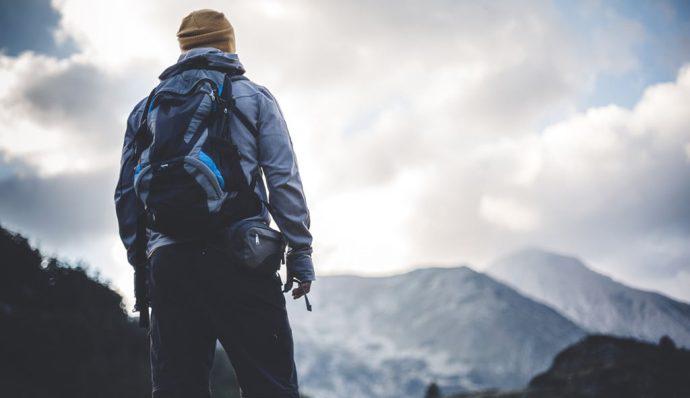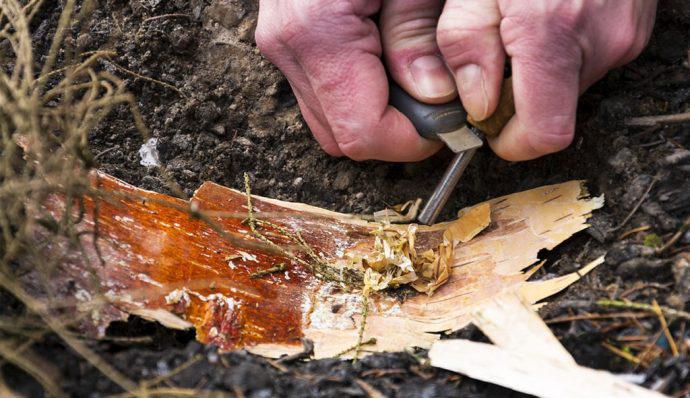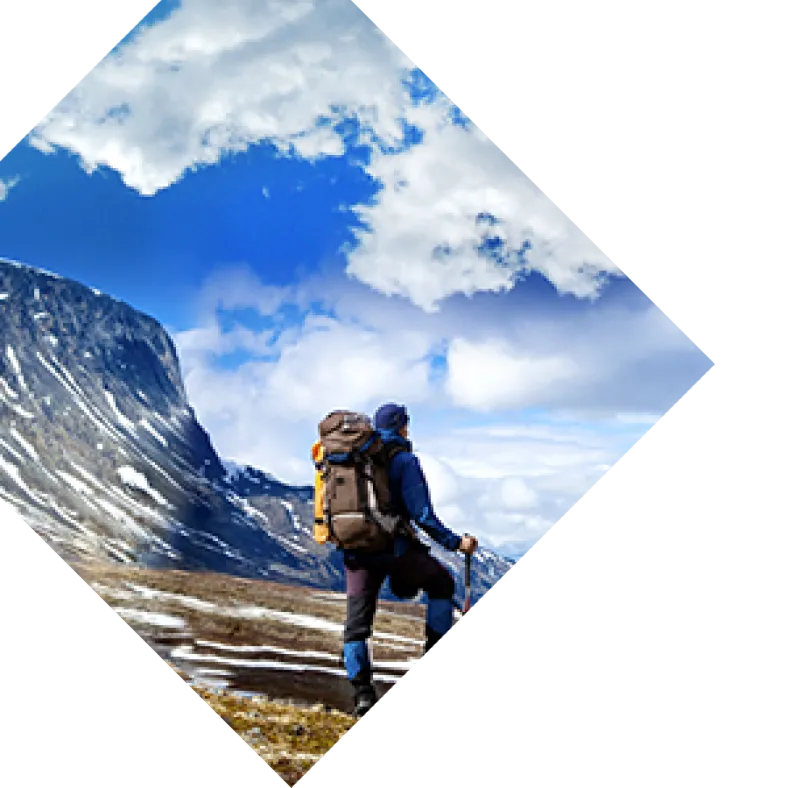No one ever intends to get lost. In fact, I’d argue that getting lost is the last thing any hiker wants to do! However, it could happen, and it is a very good idea to be prepared and know what to do if you get lost while hiking. 
Pre-hike precautions
An easy way to avoid getting lost is to take the proper pre-hike precautions. At best, these steps will prevent you from getting lost. At worst, they will help you be better prepared for the worst-case scenario. First and foremost, tell someone where you are going. This can be a parent, a friend, or a neighbor. The goal is to speak with someone who is not hiking with you since they can then provide this information to rescue officials should the need arise. Be sure to give them all of the necessary information: where you are going, what time you will begin your hike, what trail you will be following, how many people are going, when you will return, and what kind of car you will be parking at the trailhead. It is also a good idea to check with a local ranger to discuss trail conditions. He or she will be able fill you in on any fire issues, animal warnings, or general trail conditions that may prove to be useful information should you get lost while hiking.
Gear
Bringing the proper gear is another way to ensure you are prepared should you get lost. The following is a list of essential items that you should always carry:
- Food and water (always pack more than you need).
- Appropriate maps. Be sure you can read and understand them before you begin hiking.
- Appropriate clothing and hiking boots. Be sure to understand the layering system so you are prepared for any inclement weather.
- A compass. Many people want to default to a GPS unit or even their phones, but don’t forget: technology is fallible. A GPS can break and your phone battery can die. Always bring a compass and be sure that you understand how to use it.
- Matches, a headlamp or flashlight, and any other survival items you may need if you get stuck sleeping overnight. I always pack an emergency blanket with me. They are cheap, lightweight, and useful in a dire situation.
During hike
There are a few steps to take while hiking that can make it easier to find your way back to the car later.
- Constantly look for landmarks that are easily identifiable.
- Snap photos. Not only do they make for fun memories, but these pictures will help you remember the trail if you can’t find your way back.
- If you are truly worried about getting lost, build some small arrows or cairns with rocks or sticks. These identifiers can help you find your way back later on, but be sure to destroy them on your return.
What to do if you get lost
If you do find yourself lost, follow the STOP recommendation by the US Forest Service.
Stop
As soon as you realize you are lost, quit moving around. Stay calm and don’t panic.
Think
Retrace your steps in your mind. What landmarks did you see? Do you have any photos that will help you find your way back? Absolutely do not move until you have calmed down and had time to think about your situation in a clear manner.
Observe
If you are on a trail, stay on the trail, since you clearly used that path to get where you are. If you have a compass, take it out and use that tool to better understand your location. As a last resort, follow a stream or drainage downhill. This could be dangerous, so don’t make this decision lightly, but a stream or downhill trajectory will typically lead to a road or trail.
Plan
Based on the previous steps, come up with a plan. If you are not confident in this plan, stay put until you have a solid route in mind. If it is after dark and/or you are very tired, it is likely best to stay put until morning. Sunrise always lends itself to clearer thinking and rational decisions.
What to do if you have to stay the night
 If you have to spend the night, follow these instructions.
If you have to spend the night, follow these instructions.
- Find a shelter. This can be a natural area but the idea is to protect yourself from any wind and rain. This is usually easier to find before the sun sets.
- Wear extra layers to prevent hypothermia.
- Start a small fire if needed to keep warm. This will help with smoke signals as well. However, be sure you can control the fire as the last thing you want to worry about is a forest fire.
- Hang colorful items on the tree branches around you to make yourself easily seen from above.
How to survive until you are found
If morning arrives and you have not yet been found, you may need to survive a few days in the wild before rescuers can find you. This is not easy, but there are a few factors to consider that will help you survive.
- Prevent thirst. Humans can survive up to three weeks without food but only three days without water, so focus on finding a hydration source.
- Combat exhaustion. Feeling tired will only lead you into making poor decisions, so nap whenever you feel fatigued.
- Stay warm and dry. Unless you have a comfortable 24-hour-long warm spring day, there is a chance you will get hot or cold. Neither is good, as one can lead to hypothermia and the other can lead to dehydration and heat sickness. Prevent unnecessary sweating in hot weather to keep your clothes from soaking in your sweat.
- Fight infection. A broken arm would be terrible, but even a small cut can lead to a dangerous infection. Clean and wash any wounds to prevent them from worsening.
- Prevent hunger. As we said above, you can go for a while without food, but your body will weaken. It’s ideal to keep your strength up; find a food source to continually provide an intake of calories.
- Fight loneliness and fear. More than almost anything, human emotions will be the toughest battle you fight. It can be difficult to not get scared, but try your best. Fear and loneliness will only make you feel worse. Keep yourself busy with daily tasks to combat the loneliness, and learn to control your fear.
No one ever plans to get lost, but if you spend time in the outdoors you should be prepared for the worst-case scenario. Follow the strategies above and always do your research on an area before you start to explore to help ensure your safety while hiking.





